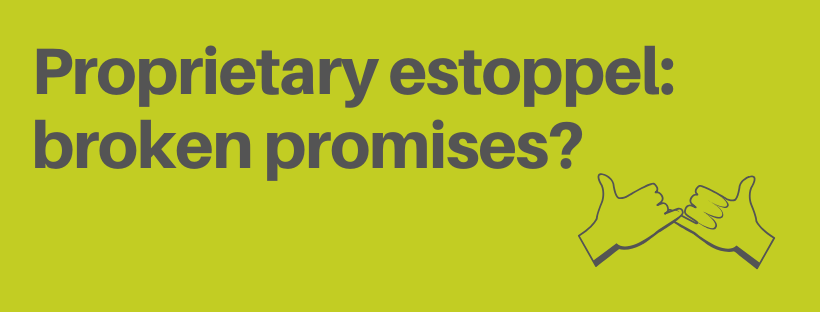- Basildon 01268244144
- Chelmsford 01245453800
- Colchester 01206217300
- London 020 4586 1280

The recent case of Guest v Guest is another in the long line of recent proprietary estoppel cases.
To be successful with a claim for proprietary estoppel, you must show that:
- A promise was made
- You relied on that promise to your detriment
- The person who made the promise is now trying to go back on it
These claims are rife in farming families as often children work on the family farm for little money for many years. Usually there is a fallout years later, and the parent tries to disinherit the child and/or not give them the farm as previously promised.
In the case of Guest v Guest, the son, Andrew, worked for 60-80 hours a week for a low wage on his parent’s farm after leaving school at 16. Andrew, along with his wife and children, also lived on the farm. Andrew’s parents promised him that he would inherit a substantial part of the farm. You can see where this is going…
In 2012, the farming business was split in two. Andrew ran one part with his parents, and Andrew’s younger brother ran another farm with the parents. Shortly afterwards, the relationship between Andrew and his parents broke down.
In 2015, the parents dissolved the partnership and gave Andrew and his family 3 months to leave the farm. Andrew’s father, David, also made a new will disinheriting Andrew completely.
Andrew brought a claim for proprietary estoppel, which was fiercely defended by his father. The High Court found that Andrew’s parents had led him to believe he would inherit a significant part of the farm, and Andrew relied on those assurances.
It was now unconscionable for the parents to go back on their promises and they had to pay Andrew the sum equivalent to 50% of the business and 40% of the value of the farm. This effectively meant that Andrew was to receive his inheritance early, and the farm had to be sold.
Andrew’s parents appealed on the question of remedy i.e. the amount they had to pay Andrew. However, the appeal was refused so the farm must now be sold to pay Andrew what he is owed.
Proprietary estoppel does not just affect farming partnerships, and can occur in a wide range of situations.
At Birkett Long, we have experience dealing with proprietary estoppel claims and can provide you with advice if needed. I am a solicitor in our Court of Protection and Inheritance Disputes team and can be contacted on 01206 217307 or lisa.cox@birkettlong.co.uk.



Comments